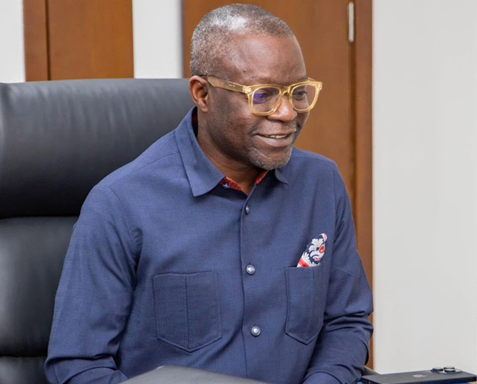…as 60-day Tema–Mombasa shipment via Europe hinders intra-African trade
By Ernest Bako WUBONTO
The continent’s over-reliance on foreign-owned shipping lines is increasingly seen as a critical barrier to unlocking the African Continental Free Trade Area’s (AfCFTA) full potential.
Industry stakeholders argue that this dependence results in inflated logistics costs, excessive transit times and reduced control over intra-African trade routes – hindering efforts to deepen economic integration across the continent.
Despite the vast opportunities presented by AfCFTA, logistical bottlenecks such as the 55 to 60-day shipping time between Ghana’s Tema Port and Kenya’s Port Mombasa – via European transshipment hubs – remain a major impediment to the free movement of goods within Africa. This inefficient routing discourages trade in perishable goods and adds significant cost burdens for exporters.
With AfCFTA in its operational phase, calls are mounting for the establishment of a direct, African-owned shipping line to accelerate intra-continental trade. Such an initiative, analysts say, could cut freight times drastically, reduce costs, boost regional competitiveness and retain profits within Africa by supporting domestic maritime enterprises.
Francis Kojo Kwarteng, Chief Executive Officer-Ghana Export Promotion Authority (GEPA), has described the prolonged Tema–Mombasa shipment time as “ridiculous” and a clear threat to the objectives of AfCFTA.
“It is absurd that shipments from Ghana to Kenya must first be routed through Europe before reaching another African destination,” Mr. Kwarteng told the Business and Financial Times.
“This detour is not just inefficient – it is a structural trade barrier that undermines our export potential,” he added.
According to GEPA’s 2024 Non-Traditional Export (NTE) Report, Africa accounted for 45 percent of Ghana’s NTEs, with the ECOWAS region contributing 94 percent of exports under AfCFTA. However, exports to East, Central, Southern and North African markets remain significantly underdeveloped due to persistent logistical and infrastructure gaps.
GEPA’s efforts to improve trade access include the establishment of a ‘Ghana Trade House’ in Nairobi, Kenya – modelled after the popular ‘China Mall’ concept. The facility exclusively showcases and markets Ghana-made products. However, the viability of this initiative is threatened by lengthy and costly shipping durations.
“It currently takes between 55 and 60 days for consignments to travel from Tema Port to Mombasa Port,” Mr. Kwarteng noted. “Because there is no direct maritime route, shipments are forced to tranship through Europe. This is precisely the kind of issue AfCFTA was created to address.”
Both Port Mombasa and Tema Port are key trade gateways in East and West Africa respectively, handling millions of tonnes of cargo annually. Despite being only a six-hour flight apart, the maritime shipping route takes nearly two months – highlighting the urgent need for direct intra-African connectivity.
Mr. Kwarteng believes that resolving such inefficiencies could unlock substantial new markets for Ghanaian exporters. “Once these structural barriers are addressed, we can significantly scale up exports to other regions of the continent,” he said.
A domestically owned African shipping line, he added, would not only reduce dependency on foreign carriers but also support local job creation, promote industrialisation and retain capital within the region.
AfCFTA and the infrastructure imperative
AfCFTA, the world’s largest free trade area by membership, connects 54 countries with a combined population of 1.5 billion. However, its success hinges on more than policy harmonisation – it requires concrete investment in trade-enabling infrastructure, especially in transport and logistics.
Currently, intra-African trade constitutes only about 16 percent of the continent’s total exports, compared to 55 percent in Asia, 49 percent in North America and 63 percent within the European Union. Bridging this gap demands urgent improvements in transport infrastructure and trade facilitation systems.
At the Africa Unlocked Conference held in Cape Town, stakeholders underscored the need for efficient transport corridors, digital payment systems and an integrated medium of exchange as prerequisites for effective trade across African borders.
Ultimately, a robust African shipping industry could serve as the backbone of AfCFTA’s implementation – connecting markets, lowering transaction costs and transforming the continent into a truly integrated economic bloc.










